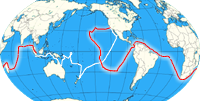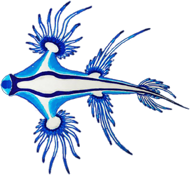On our way across the Mozambique Chanel between Madagascar and the African continent there is supposed to be the Agulhas current running from the north to the south. We encountered some current during our trip but sadly most of the time against us. We were really wondering where the famous Agulhas Current was hiding.
Since there were strong southerly winds coming up we decided to stopover in the Bazaruto Archipelago off Mozambique. Next to the largest island Bazaruto there are another five smaller islands. All consisting of lots of sand which is still building up because of the warm, southward-flowing Mozambique current. Some of those sand dunes are really impressive. Since 1971 it is a National Park because of the largest population of Dugongs in Mozambique, more or less 120 animals, and the breeding beaches for at least four different species of marine turtles.
The anchorage is sheltered but there is still some swell coming in sometimes. The area is very interesting because you have lots of sandbanks, big areas of seagrass (which the dugongs need to feed on) as well as coral reefs. At the first anchorage we were able to watch some Indo-Pacific bottlenose dolphins (Tursiops aduncus) swimming and jumping around our boat. But although we looked closely we didn’t see any dugongs in the area. But we observed some manta rays (probably Manta alfredi) swimming around between the islands in very shallow water.
It is a fantastic place for bird watching and we saw lots of African sacred ibis (Threskiornis aethiopicus), which are called sacred because they were a symbol of the God Thoth by ancient Egyptians. And our first pelicans, some great white pelicans (Pelecanus onocrotalus). Furthermore plenty of great egrets (Ardea alba) and lots of young and old white-breasted cormorants (Phalacrocorax lucidus).
We met many local people who are living on Bazaruto itself. All in all the archipelago has about 3.500 residents in seven communities. They are mostly very poor and 70% of households rely on small scale fishing to survive, while others harvest sand oysters and other marine resources, grow crops or raise livestock. Resources may not be sufficient to maintain the population because of decreased catches of fish, reduced harvests and so an increasing poverty and food insecurity. We could observe their fishing technique where they lay out a big net beginning from the shore with a boat. Then they start pulling it back to shore and pick out all the small fish in the net. It did not look like much for all the effort they made. So when we went ashore we took some clothing and food with us which they were happy to receive. Some of the fishermen also came to our boat at anchor and traded some squid for ropes, fishing lines, food and clothing. They were very friendly and proud of their shops and schools.
A teacher on one of the islands told us that due to National Park regulations they are not allowed to grow anything which is not growing on the island anyway. And so they rely mainly on fishing but at the moment they hardly have enough to eat. So it is very interesting that there are also luxury resorts on those islands, where rich people besides the beautiful beaches and the sea can enjoy riding on the beach or game fishing. To arrive they usually take the Helicopter from the main land. It seems to be a popular destination for the rich people.


.jpg)
_(Puchner_Sonja).jpg)

_(Puchner_Sonja).jpg)
_with_their_juveniles.jpg)


.jpg)


.jpg)

.jpg)




.jpg)


 >>planned route - join us ...
>>planned route - join us ...